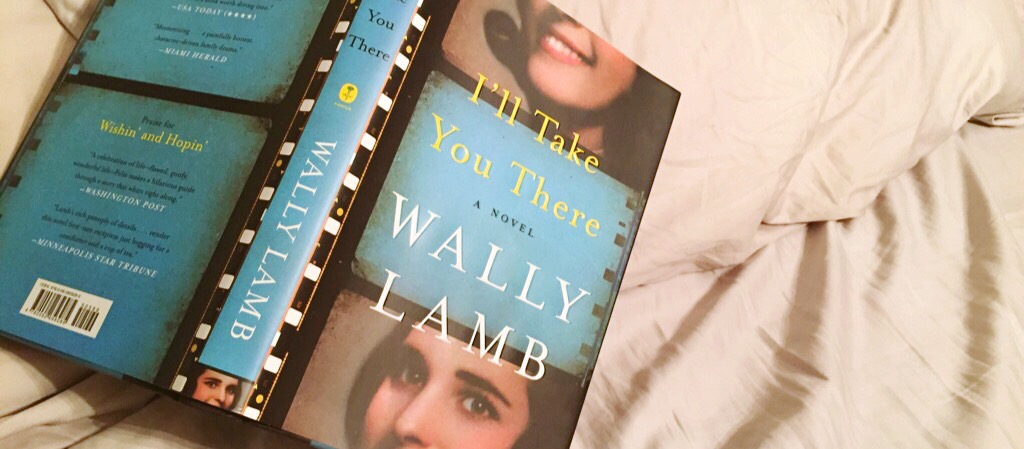Writing Grit: If you want to write, you have to read
"Reading is a means of thinking with another person's mind; it forces you to stretch your own." -- Charles Scribner, Jr.

Courtesy of GraphicStock.com
I spent most of my childhood with my nose buried in a book. My mom worked for the local newspaper, it's sole employee in our small town. She spent two mornings each week in the office, during which my siblings and I snuck into the empty library next door and occupied ourselves with endless books. I vividly remember sitting cross legged on the worn carpet, my back pressed against a wall of stories. I remember tracing my hands along the spines, looking for the spot where my name would fall once I became a writer.
In the second grade, while my classmates flipped through picture books, I delved into Black Beauty. In third and fourth, I plowed through the works of Roald Dahl, Judy Blume and Beverly Cleary. By the end of sixth grade, I'd finished the Sweet Valley High series -- 181 books in total.
In high school, I read Stephen King, V.C. Andrews and Anne Rice. I read the "classics": Jane Austin, Charles Dickens, Charlotte Bronte and Mark Twain. I struggled through Atlas Shrugged, and fell deeply in love with the work of Margaret Atwood.
I read on the bus until I grew sick. I read late into the night. I read Cosmo and Maxim with friends, and Reader's Digest with my grandparents. I read anything and everything I could get my hands on.
Reading was life.
But of course, life changes. I found a job, got married, bought a house, had kids. Life got busy. It's been a long time since I've read like that. I still read, but the books are fewer and far between. Instead, I spend the spare time I have writing. Or trying to write.
Something was missing.
Why Writers Must Read
When you read, you:
- expand your vocabulary and knowledge of language
- learn the rules of writing, and how to break them
- witness, by example, what works and what doesn't
- explore new ideas and techniques
- find inspiration

Courtesy of GraphicStock.com
Pay attention to what other writers do -- the descriptive words they choose, the way they craft dialogue, the twists and turns in plot. Make note of the things that you like, as well as the things you would change. Look for the story ark; observe how the author moves from scene to scene, how the characters evolve throughout the book, or fail to do so. Read to learn.
And also, read to enjoy. It's okay to let a good story pull you in and carry you away, to put your writer's brain on silence and read with your heart. Sometimes you learn with intention. And sometimes you learn through osmosis.
What should writers read?
Read what you have
I have a stack of unread books by my bed, so fortunately, I am in no shortage of reading material. The point is that you shouldn't wait until you have a chance to buy or borrow that one book you've been dying to read. Start with what you already have, even if it's something you wouldn't normally pick up. You might surprise yourself.
Read what's popular
Sometimes aspiring writers feel the need to be highly selective -- and somewhat pretentious -- about the books they read. Yes, you should read books that are critically-acclaimed. You should read the time-tested classics. And you should also read books that are brand-spanking new and popular. One of the reasons books make the best seller's lists is because a lot of people think they're good. And if you want to write a book that appeals to the public, you need to be well aware of what the public likes to read.
Read outside your comfort zone
The books I enjoy most would likely fall under the literary fiction category. That's also the type of book I hope to write. But I also read a lot of genre fiction, including horror, mystery/suspense, fantasy and science fiction, and non-fiction, including self-help, business, comedy and biographies. By doing this, I get a deeper understanding of the story elements that different genres are known for, as well as how to make those elements work in my own writing.
Read your favourites
Wally Lamb is one of my favourite authors; I deeply enjoyed several of his books, and was deeply disappointed in a few. But that's ok, because it lead my to explore why one book worked while another didn't (at least not for me). Same author, same writing style, so what went wrong? An unrelatable character? A hole in the plot?

Read what you love, over and over again
I don't keep a lot of books after I've read them, largely because I have an endless list of new books I want to read, so the odds that I'll return to an old book are slim. However, I do keep a few of well-loved books on hand -- like Life of Pi by Yann Martel or The Handmaid's Tale by Margaret Atwood. These books are more than just enjoyable stories; they are teaching materials. And every time I read them, I dig in a little deeper, I notice something new and I learn a little bit more about what makes great writing great.
I set a new goal to read every day, even if it cuts into some of my writing time. So far, I'm off to a pretty good start. I recently finished The Break by Katherina Vermette, which taught me a fair amount about writing emotion and I am now knee-deep into Barkskins by Annie Proulx.
How has reading helped you to become a better writer? What is currently on your reading list?
Stephen King mentions that writers must read in his memoir, On Writing. I totally agree that we must read.
On Writing is easily my favourite book on the craft. Regardless of how people feel about King's talent, his advice on writing is practical, inspirational and so, so true. Two things that stuck with me most were his advice to read, and to sit down and do the work.
Amen! I can't understand how someone would think they could be a great writer without being a voracious reader! I loved Sweet Valley High when I was a kid. I only recently found out that they made a TV show out of the series. My favorite books are Wide Sargasso Sea by Jean Rhys, Sula by Toni Morrison, The Things They Carried by Tim O'Brien, and The Handmaids Tale by Margaret Atwood. Thanks!
I agree! And I'll be adding the books you named to my ever growing list of books to read. 🙂
Excellent post! Thank you! I loved to read as a child and teenager. I also remember the Sweet Valley High series. And I remember borrowing books by V.C. Andrews from my grandmother. I can identify with your experience. Grow up, get married, have children and time to read for ourselves becomes limited. I try to read to my children everyday, stories that they choose. We have so many books that I have yet to read! Perhaps it's time for me to set a new goal for myself. Thank you for the reminder and encouragement. I have upvoted and will resteem!
If you want to write, you have to read
This is very true indeed
For reading brings new ideas
Frees from fears
And brings the flow
So go
And read a great book :)
This is poem 37 in my poetrymarathon this weekend :)
And read something challenging - "outside your comfort zone" as you put it
A friend of mine gave me this same advice, more than one time:
Thanks for the what to read sections, I agree that reading popular books is a good to know what the public likes. if you want to write for public that's the best thing to do.
But for me, I write for myself... I strive for better works but won't do something just because it will sell.
I haven't posted any of "real" stories on steemit yet. since I write mostly in arabic. But I posted for two challenges Short Tens and Trapped.... I also think you'd like my Sides of Conflict analysis post
Hi @redhens, I just stopped back to let you know your post was one of my favourite reads and I included it in my Steemit Ramble. You can read what I wrote about your post here.
Thank you! I appreciate your support. I always enjoy your recommendations, so it means a lot to be included in them.
it's nice to be reaching a point where some people know that I don't make the selections lightly. Thank you :)
Exactly what I always tell my students when they complain about a long reading assignment. Readings help me think: think with others, think for myself, and even think about thought. Writing, before anything else, is thinking made concrete through expression. I have a long list of time tested classics to finish, Dostoevsky, Kafka, Tolstoy, Bronte, Camus, etc. I was introduced lately (about 2 years now) to this contemporary Japanese author, Haruki Murakami. I have yet to explore more his collection. It was a great read! Thanks!
I am from a family of voracious readers so I completely agree with your article. It was extremely well written and shared some of yourself, the recipe for great writing! You gave me the lift I needed today to persevere! I am coming off of two broken feet, so reading is what I have been spending most of my time doing until my husband reminded me of steemit...Early 19th century..Bronte, Austen, Alcott some of my favorites. :)
Blessings,
Melissa
Glad you enjoyed it! Hope you're healed and well again soon!
ME three! I certainly plan on it! Look forward to seeing you around again...:)
Congratulations @redhens! You have completed some achievement on Steemit and have been rewarded with new badge(s) :
Click on any badge to view your own Board of Honor on SteemitBoard.
For more information about SteemitBoard, click here
If you no longer want to receive notifications, reply to this comment with the word
STOP